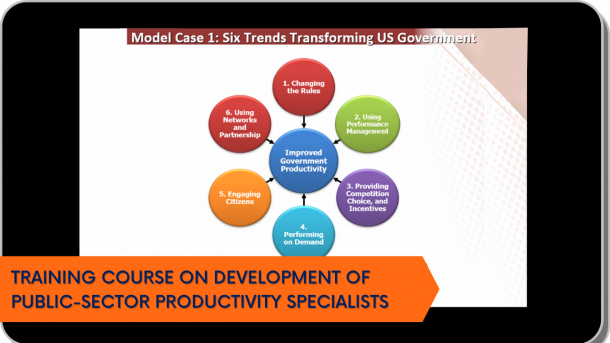
Select Page
 Developing a new generation of public-sector productivity specialists
Developing a new generation of public-sector productivity specialists
The COVID-19 pandemic has hit organizations and employees in every sector worldwide in unprecedented ways, including the public sector. Almost all governments implemented strict lockdowns, contact tracing measures, and digitization to save lives while ensuring the continuity of essential services such as healthcare, education, public administration, and food delivery. With restrictions on people’s mobility still imposed even after two years, difficulties in operating and delivering basic public services continue. The situation also changed the ways employees in public-sector organizations operate such as adjusting to remote work and adopting digital solutions to ensure that services can be provided while enhancing performance and productivity. Recognizing the importance of public-sector performance in serving citizens’ needs under the new normal, the APO continues examining methods and approaches to improve work processes, motivation and skills of employees, and managerial capability to optimize public-sector resources in the region.
To upskill participants in public-sector organizations in its members, the APO Secretariat organized its signature virtual training program for the Development of Public-sector Productivity Specialists, 16–20 May, in partnership with the Development Academy of the Philippines. It covered the role of the public sector and global trends in improving productivity, public-sector leadership, approaches for improving organizational productivity, citizen-centered service and opportunities for improving public service delivery in the new normal, regulatory reform, measuring public-sector productivity, performance management, e-government, and change management in the public sector.
Forty-five participants from 11 APO members attended this workshop. There were three resource persons from Canada, the ROK, and the Philippines, who led the workshop and engaged in discussions with participants.